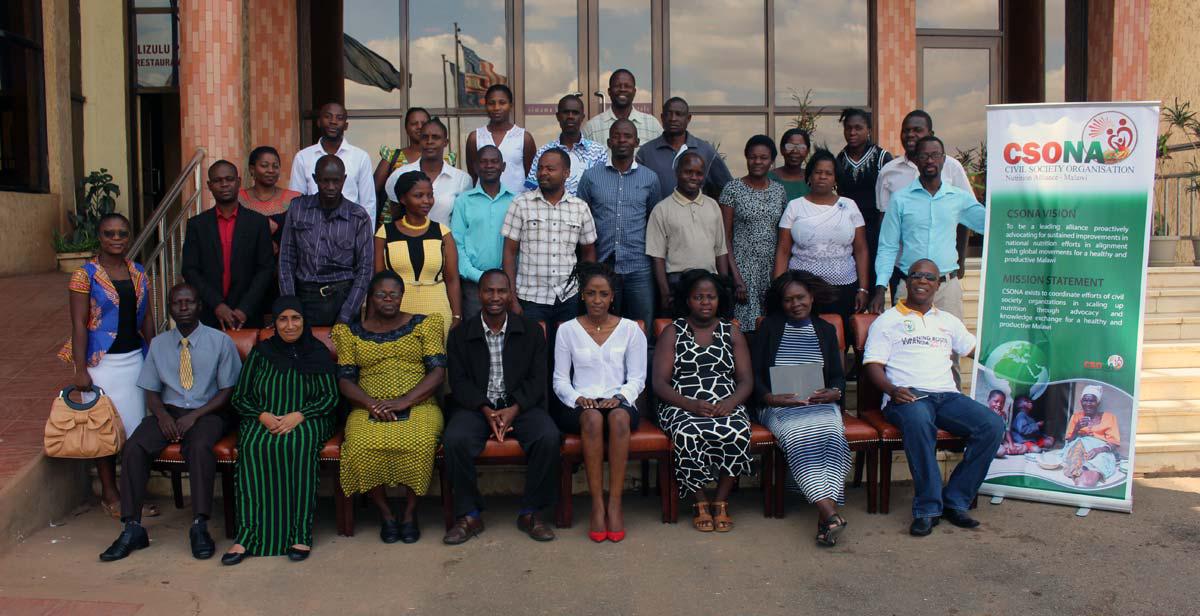Lubowa Eriasafu, from Uganda, was until recently a Progressio development worker in Malawi, with Concern Worldwide Malawi (supporting the Malawi Civil Society Organisations Nutrition Alliance - CSONA), where he worked as an Advocacy and Communications Advisor. Prior to this, he worked as a Progressio development worker in Somaliland (2013-2014) with Save the Children International Somaliland, as an Organisational Capacity Building Adviser.
What is your work background?
Before becoming a development worker in Somaliland in 2013 and Malawi in 2016, I had worked in Uganda, Ethiopia and Tanzania since 2003 with different local and international non-governmental organisations, focusing on areas around community development programming, relief operations, advocacy and campaigning, social accountability monitoring, development communication, civil society development, and network development.
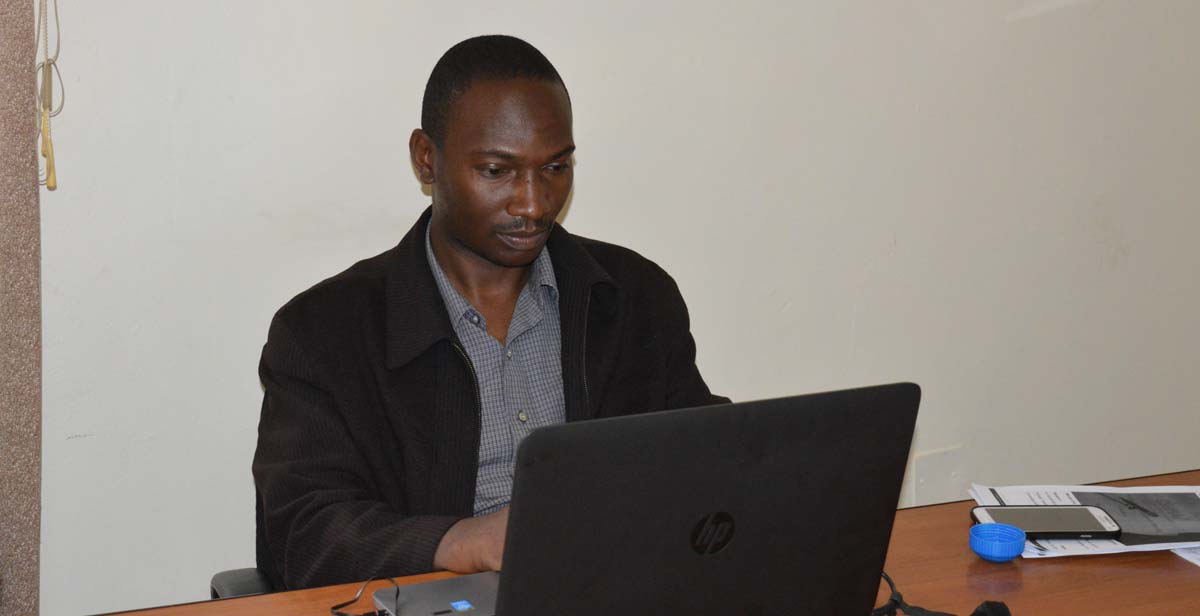 Lubowa Eriasafu at work in office at CSONA
Lubowa Eriasafu at work in office at CSONA
What inspired you to become a development worker with Progressio?
I had heard about Progressio through my friends who were DWs then, so I got the chance to learn about Progressio’s work, values and approach to work. Given my work background, I believed that my competences and professional commitments and ambitions would be a good match with the kind of work Progresso was doing. I developed a strong belief that I could add value to Progressio’s work in enabling people to challenge and change the situations that keep them in a state of poverty, vulnerability, and suffering. Also, I was confident that if I joined Progressio, put in the right placement, my profession would be strengthened, for example through learning and exposure.
What is your first memory of arriving in your country of placement?
My first memory of arriving in Malawi was the expression from Progressio staff in-country and the people in the partner organisation, which indicated to me a high expectation for good performance and results and a willingness to work together. In Somaliland, the biggest impact on me upon my arrival was the welcome and expression of willingness to work together shown by Progressio staff. Although initially I didn’t get the same impression from the main partner as I got from Progressio staff, all the people I interacted with first time also expressed a high expectation for good performance and results, as it was in Malawi.
What do you enjoy most about your role?
What I enjoyed most was the fact that both placements had a high demand for several good results and changes, which we had to show in a short period of time (i.e. less than a year for each). This required me to be very professional, focused and creative, and I always love to work in such an environment.
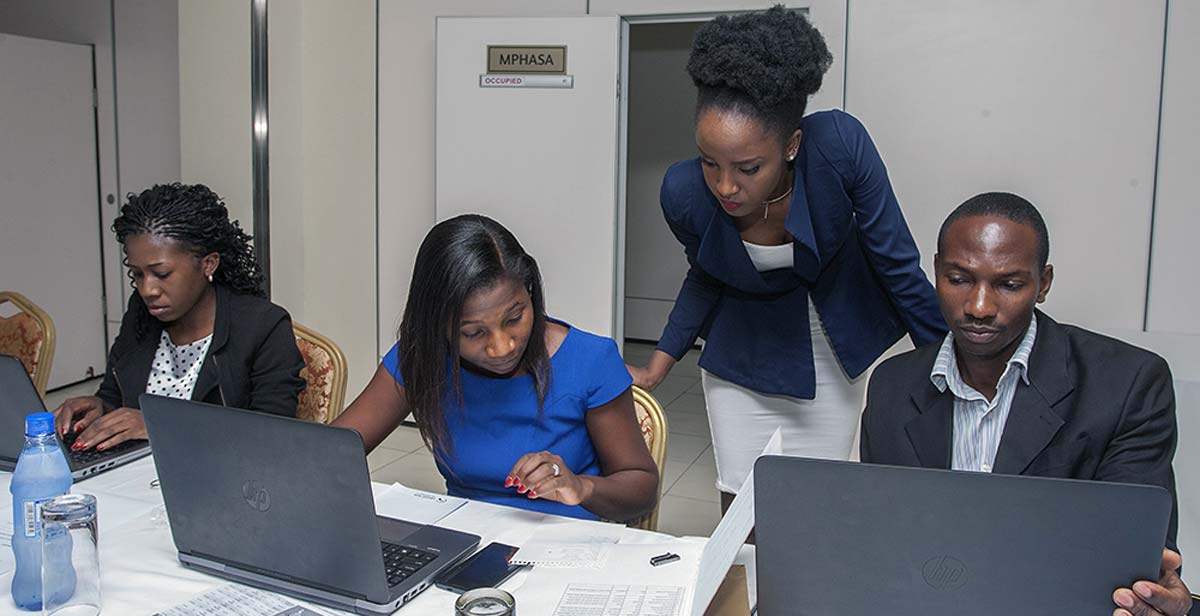 Lubowa Eriasafu with colleagues at CSONA, in Lilongwe
Lubowa Eriasafu with colleagues at CSONA, in Lilongwe
What has been the most exciting moment so far?
My most exciting moment in both placements was to live and work well with new people who appreciate my contribution and give full support when needed, without showing signs of regret for engaging me. It was exciting for me to be part of the changes we worked on together.
And the biggest lesson?
I learnt that building the capacity of local CSOs for sustainable change requires the full participation of all those concerned and affected. This neutralises people’s high expectations and instead brings about a common understanding of what needs to be done for the desired change to be achieved, with everyone getting a feeling that they have contributed to the change and are also accountable for what hasn’t worked well.
What is the biggest change you have witnessed since starting your placement?
The biggest change I witnessed was improvement in staff skills, knowledge, confidence, attitude and commitment, which have been crucial to seeing the direct beneficiary organisations change and develop their practices in line with the placement objectives.
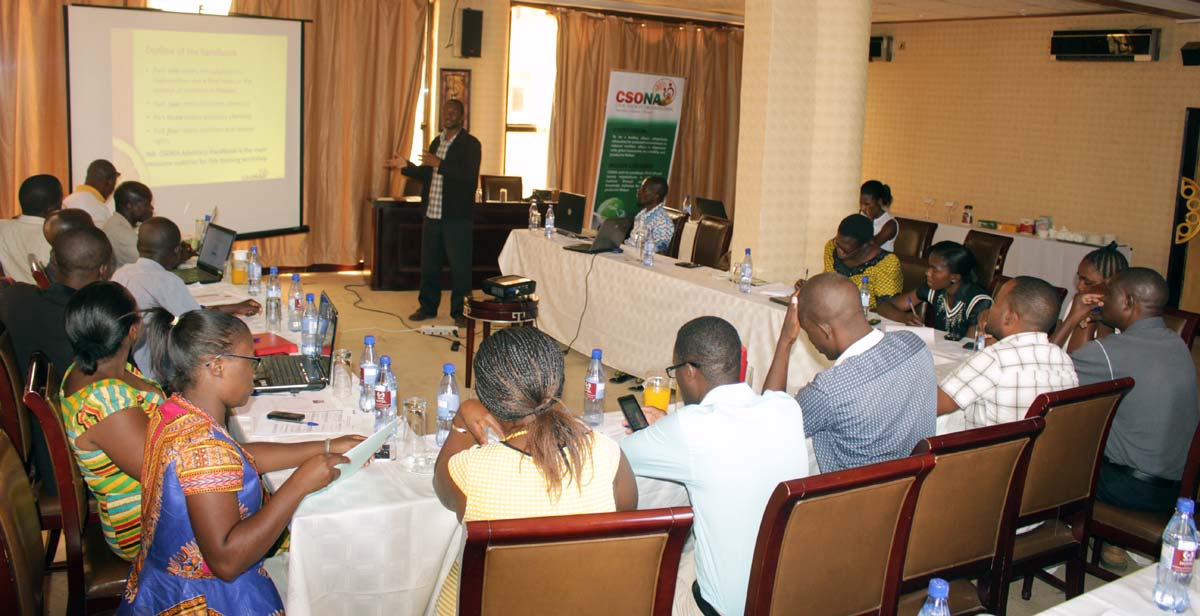 Lubowa Eriasafu facilitating a training workshop on Advocacy for CSONA members, in Lilongwe
Lubowa Eriasafu facilitating a training workshop on Advocacy for CSONA members, in Lilongwe
If you could change one thing, what would that be?
I would change the dimensions used to measure or determine the DW’s performance at partner level for short-term capacity building DW placements. I would firstly look at the desired change in terms of skills, knowledge, attitude, confidence, commitment, practice and pre-set deliverables, rather than measuring performance against broader intermediate outcomes on which the DW may not have control.
What strikes you most about Progressio’s development worker model?
What strikes me most about Progressio’s development worker model is the two-way learning process between the DW and the organisation whose capacity is being built.
What advice would you give to someone who is thinking of working in international development?
I would advise to try to understand what international development is all about and how it links to national and local development, and the dynamics and forces at work. This will help you to learn and make informed and meaningful contributions, and where possible maintain professional focus.
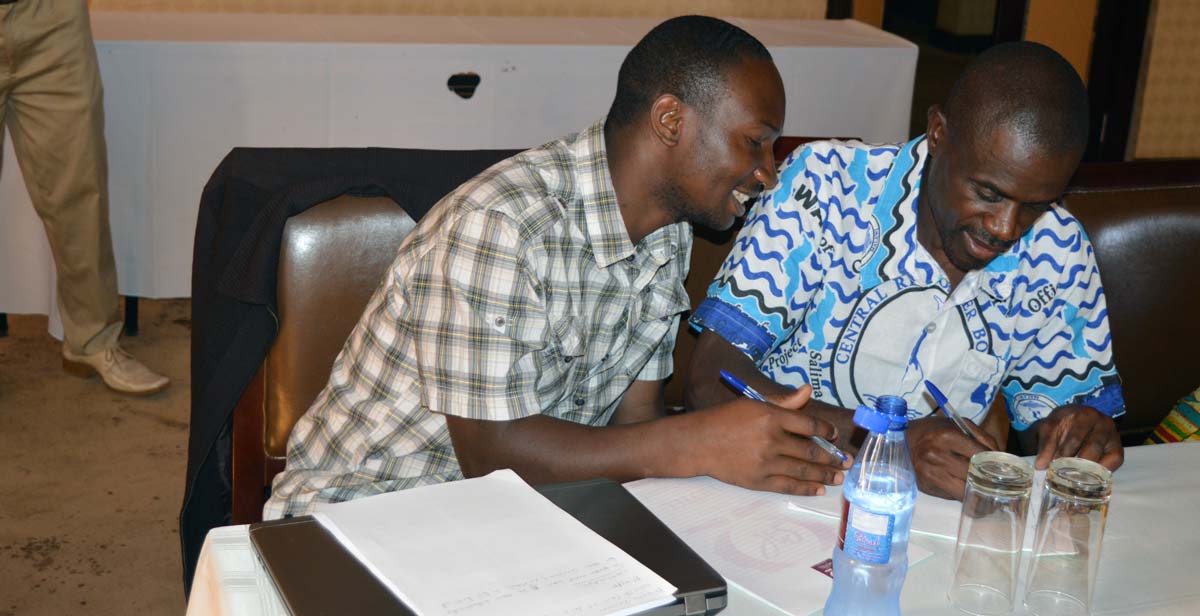 Lubowa Eriasafu in a discussion with a training participant
Lubowa Eriasafu in a discussion with a training participant
Where do you see yourself once your placement has ended? And in what ways is this placement with Progressio assisting you to get there?
I see myself in a more challenging job position where I can make more professional contributions to social-economic change and development at large, and the two DW placements I have had are helping me get to this in several ways. The placements have given me further understanding of international development work and how it links to national and local development, and how important it is to develop active citizens and a strong civil society.


